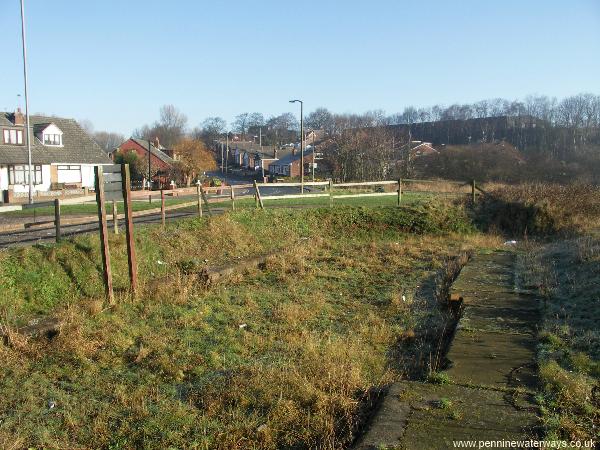
After the wooded section, the remains of Newton Common Lock are found on the outskirts of Earlestown. The lock had been completely buried but has been partly uncovered by canal society volunteers.
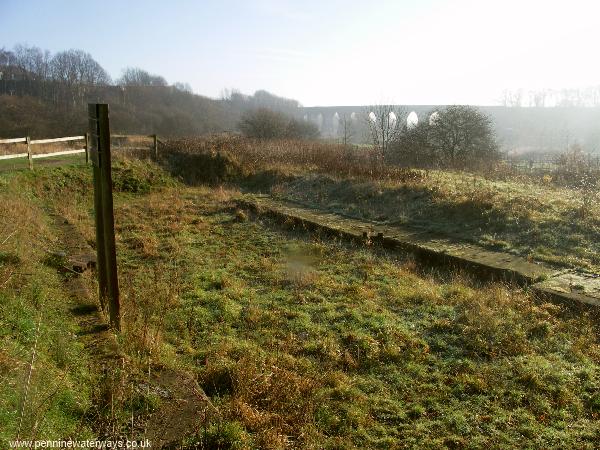
Newton Common Lock, Earlestown, looking towards Sankey Viaduct, popularly known as "The Nine Arches".
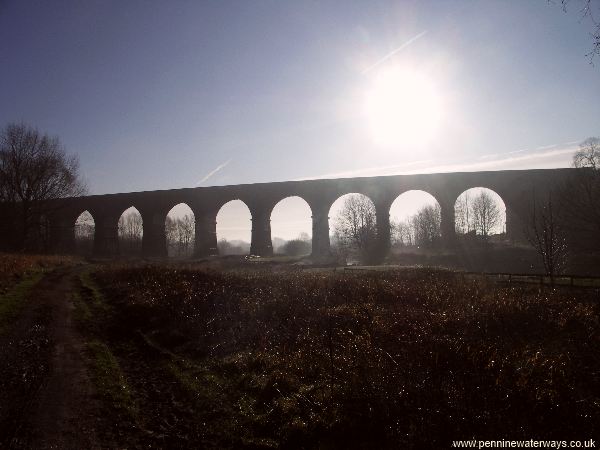
The nine arches of the Sankey Viaduct on a winter's morning.
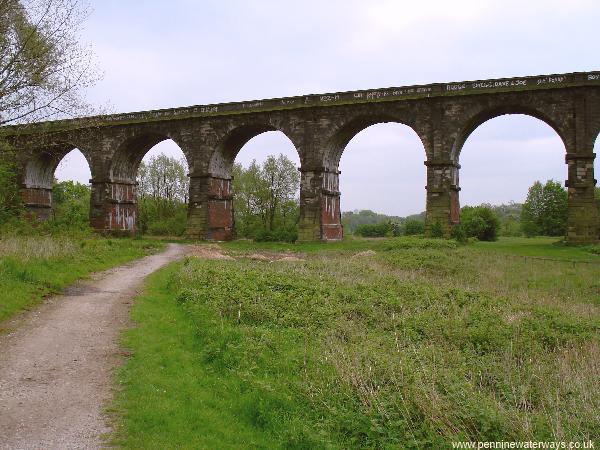
Sankey Viaduct was built by George Stephenson in 1830 to carry the Manchester to Liverpool railway across the Sankey Canal.
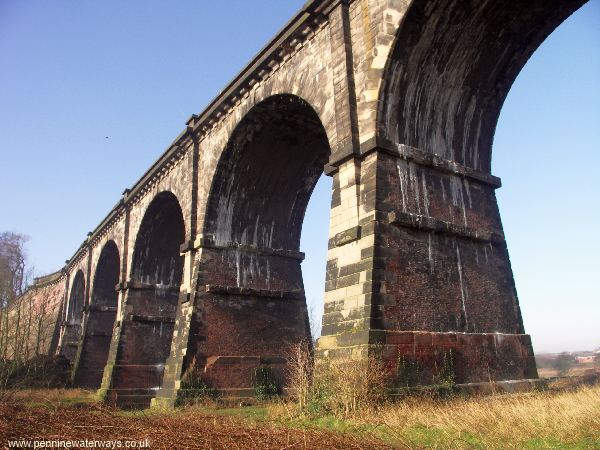
The sturdy piers of the Sankey Viaduct are faced with sandstone.
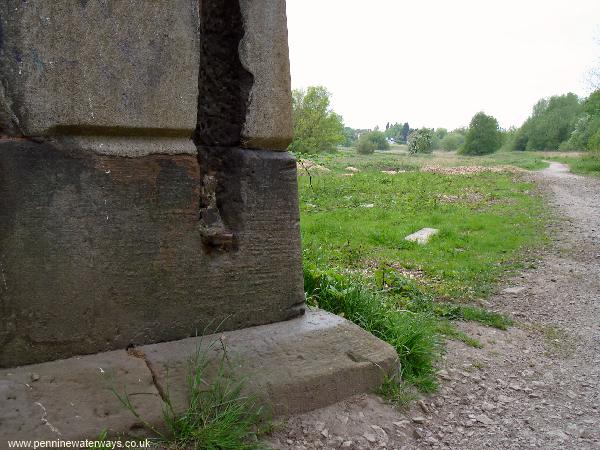
The recess housed a wooden roller to protect the corner of the stonework from the rubbing of towlines.
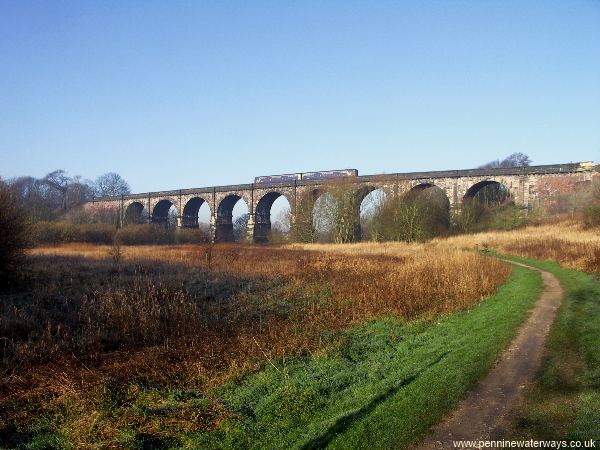
A modern commuter train crosses Sankey Viaduct on what was the world's first passenger railway. The path follows the line of the towpath, with the infilled canal bed on the right. Off the photo, to the right, was the site of the Sankey Sugar Works, the last users of the canal.
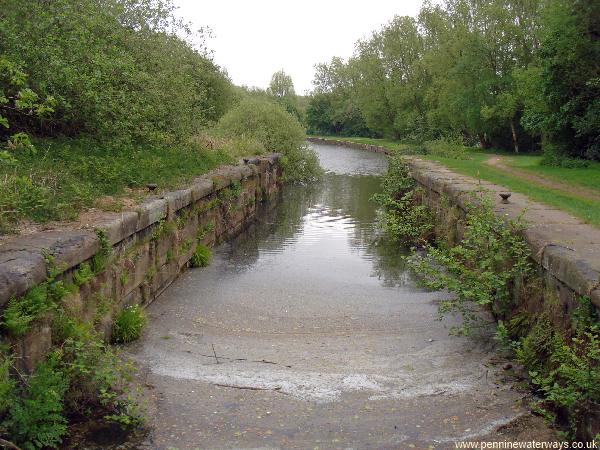
A short way beyond Sankey Viaduct, the canal is back in water at Bradley Lock (originally Bradlegh Lock).
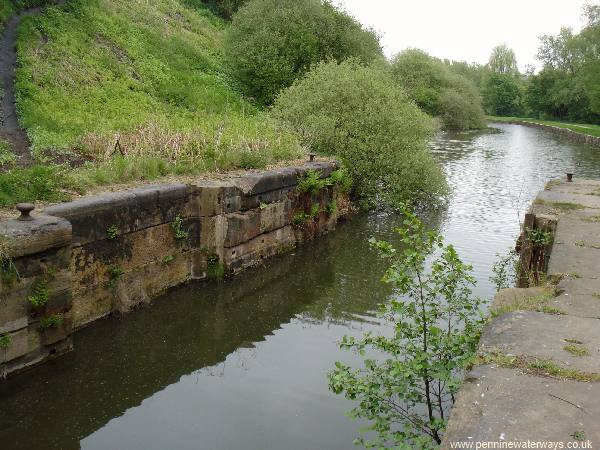
Tail gate recesses at Bradley Lock.
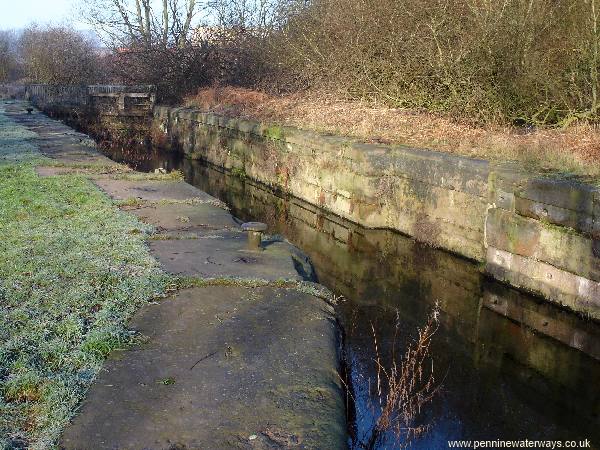
The upper gates of Bradley Lock are still in place.